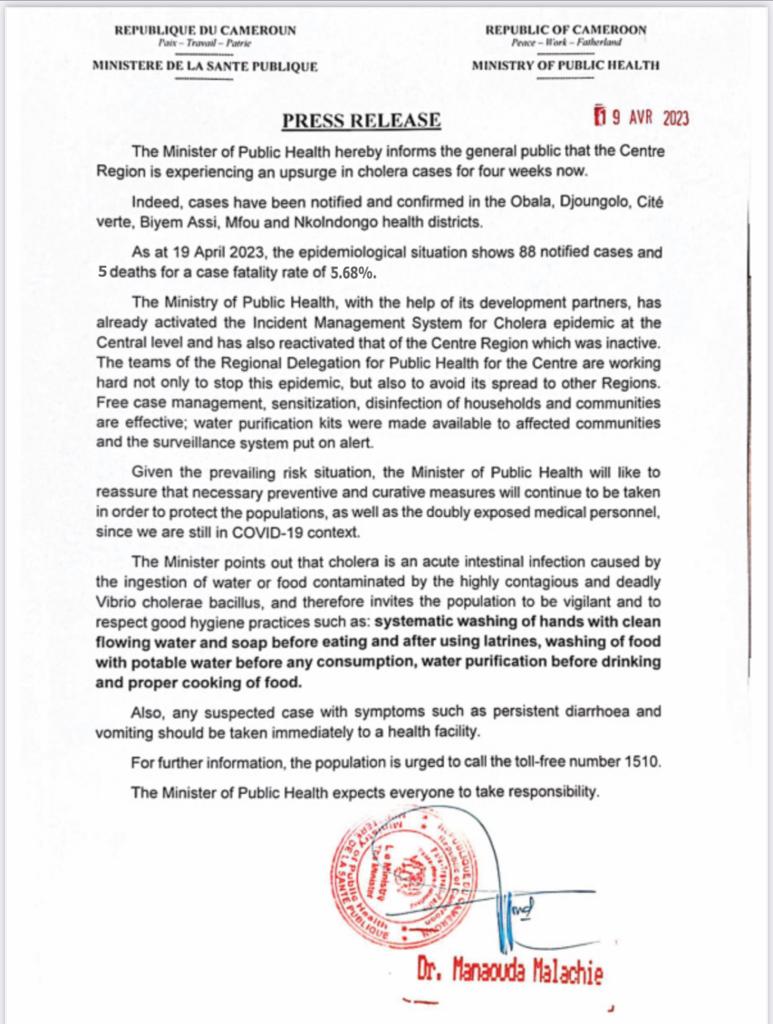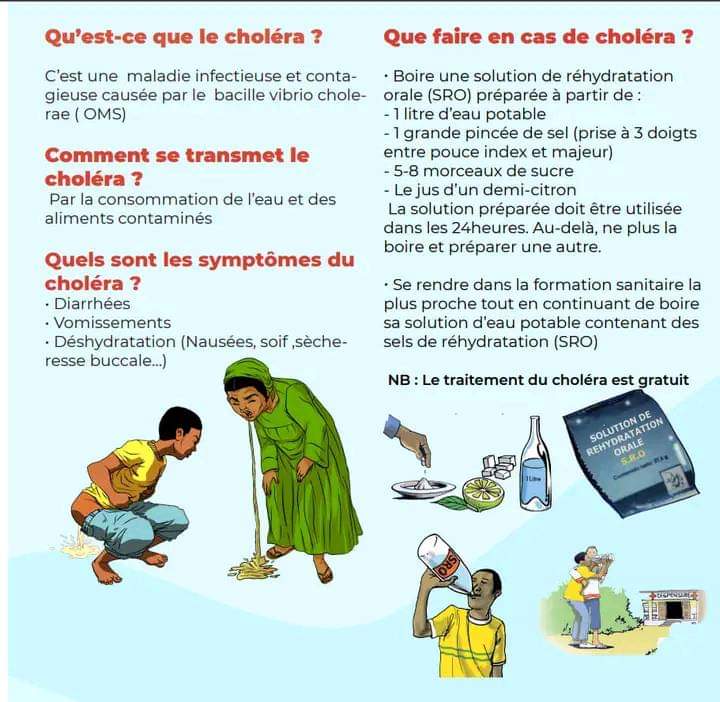Cameroon: more cholera cases surface

Already 5 persons have died of cholera in the Centre region of Cameroon and 88 cases have been detected as of April 19 with a mortality rate of 5.68%. The information was revealed on Wednesday April 19th by the Minister of public ealth, Dr Manaouda Malachie in a release as he calls on Cameroonians to be vigilant and to respect food hygiene practices.

According to the Dr Manaouda Malachie, the cases were detected in the Obala, Djoungolo, Cité Verte, Biyemassi, Mfou and Nkolndongo health districts and need to be properly handled so as to avoid its spread to other parts of the country.
Let’s recall that in 2022, Cameroon was among several countries in West and Central Africa that experienced recurrent cholera outbreaks. According to data from the World Health Organization, between 29 October 2021 and 30 April 2022, a total of 6,652 suspected cases including 134 deaths (case fatality ratio 2%) were reported in 6 regions of the country.
The South-West had 4,617 cases, 77 deaths
The Littoral recorded 1,704 cases, 51 deaths,
The South 183 cases with 2 deaths,
The Centre 125 cases, four deaths,
The North 15 cases, no death and Far North eight cases, no death.
We also learn that of the 6,652 suspected cases, 5,960 cases that is 90%, including 93 deaths (69%) were reported in 2022.
The Minister however reassures public opinion that necessary preventive and curative measures will continue to be taken to prevent the spread of the disease. Some of these measures are sensitization campaigns, disinfecting households and communities, water purification kits made available by teams from the Regional Delegation of Public Health for the Centre to avoid its spread to other regions among other measures.

Dr Manaouda Malachie concludes the release by saying suspected cases with symptoms such as persistent diarrhea and vomiting should be immediately taken to hospital for prompt medical action or people who suspect they could be sick can also call the toll free number 1510 for further information.




